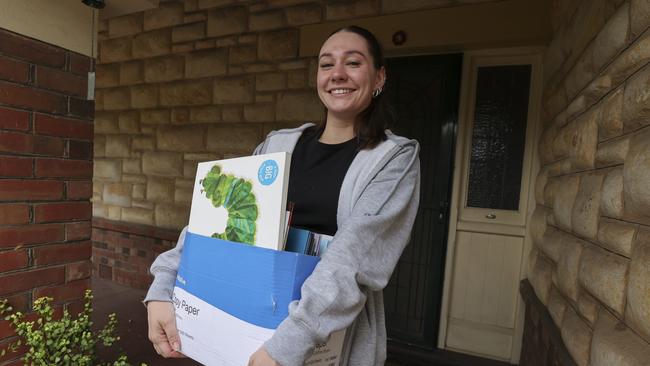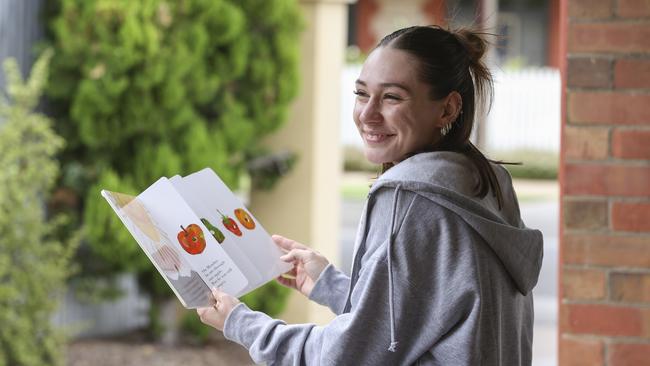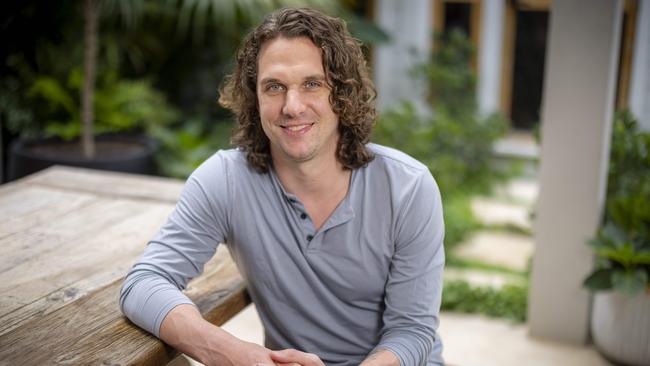$20,000 pay gap for Australia’s graduate teachers as top states use dollars to fix school shortages
Public schools in Australia are facing chronic staff shortages but not everyone is prepared to pay up to fill the vacancies. See where wages are best (and where they’re not).

Education
Don't miss out on the headlines from Education. Followed categories will be added to My News.
As states across Australia fight an unprecedented teacher shortage, latest data shows one education department is offering graduate teachers around $20,000 more annually.
A comparison between teacher starting salaries nationally shows the Northern Territory government pays its graduates an annual $92,215 salary after a new agreement came into effect in November last year.
While in Queensland, where the Education Department is struggling to fill some 1000 roles, graduates are offered a $84,048 annual salary.
In Tasmania the graduate salary is $70,571 and in Victoria, where more than 1000 jobs are being advertised, graduates are paid $73,499, while South Australia and New South Wales pay over $80,000.
Education leaders have warned a mass exodus of teachers has left Australian classrooms short of more than 4000 educators this year and a competitive salary was vital to attracting more young people to the profession.
Australian Education Union federal president Correna Haythorpe said despite most teachers seeing their jobs as “a vocation”, higher pay was still a drawcard.
“We have a chronic workforce shortage in public schools across the nation and improving teachers’ salaries is an important component of resolving that shortage, as is the need to ensure beginning teachers are supported with ongoing mentoring, professional development and resources to meet the needs of every child,” Ms Haythorpe said.
“Some states have had to offer higher graduate salaries due to the chronic shortages they are experiencing.
“This is attractive to teachers who are willing to shift across borders, so all state governments need to be cognisant of this and offer nationally competitive teaching salaries.”
Figures show New South Wales offers a $85,000 annual teaching graduate salary, the ACT pays $84,978 and South Australia $80,093, with incentives for remote or regional roles.
In the private sector, teachers’ salaries are typically higher than in the public sector where, according to job-site Seek.com.au, a teacher’s salary in the private sector ranges from $95,000 to $105,000.
A NT education and training department spokesman said late last year that the reported classroom teacher vacancies for 2025 was 119 across 153 schools.
“On 7 November 2024, Northern Territory educators commenced employment under the new Educators’ Agreement, which has teachers in the Territory the highest paid in the country with the base salary for a first-year teacher now $92 215 per annum with additional entitlements for regional and remote teachers,” the spokesman said.

Remote South Australia’s teacher wages leave city pay in the dust
Elly Read is yet to graduate from her primary teaching degree but is already posted to a school in far north South Australia where she is earning thousands more than her city counterparts.
The 21-year-old primary teaching student will start work on the Anangu Pitjantjatjara Yankunytjatjara Lands in a few weeks and says a higher pay packet along with other lucrative incentives offered to attract hard-to-staff schools are welcome.
Incentives for staff teaching in remote areas range from cheaper accommodation, help in paying off HECS debt and study leave, but for Elly, the job is not about how much she is paid.
“I just really want to teach the kids there in the APY lands,” the Ethelton student, who also has won a scholarship to research teaching outcomes in smaller schools through the University of South Australia, says.
“My decision to teach isn’t about the money. Sometimes there are days where you deal with a lot of trauma response from kids and it’s so draining and you sit there and think ‘we don’t get paid enough’.
“Then most days it’s so rewarding and I think ‘we get paid so well to be here’.”
“I’ve always wanted since I started studying to go up to the APY lands and work. I think it’s fortunate that my goal to work with Aboriginal children aligns with a lot of incentives, but it’s not the reason why I want to go there.”
Source: Graduate Outcomes Survey (2023)
In South Australia, country teachers – who make up about a quarter of the state’s workforce – get annual incentive payments of up to $10,023 and a “locality allowance” to compensate for isolation, higher living costs and travel to the city.
Elly first started studying exercise physiology when she left school but when they did not gel her Mum suggested enrolling in a Bachelor of Early Childhood Education (Honours) at the University of South Australia.
Now in her fourth year and having also worked at Kalaya Children’s Centre in Queenstown, Elly recognises many teachers are worried about salaries and are drawn to regional jobs for the money.
However, she says teaching at Kalaya with ‘special authority’ granted to students under South Australian legislation in its bid to tackle a chronic teacher shortage, cemented her passion for the job.
“Being able to watch them make improvements and see it in themselves is so amazing, when they can recognise they have made an achievement and they are so excited to show me, I feel so proud I want to cry some times,” Elly says.
“It can be exhausting, I will come home and fall asleep for three hours sometimes but I’m still happy to go to work tomorrow, if you are not there for the right reasons …. I think you can lose the passion.”

Victorian teacher Nicholas Cox, 34, agrees, saying he pursued plans to front classrooms for the first time after a far more lucrative career as a financial analyst in Melbourne left him “feeling empty”.
“My move into teaching has really been driven by a passion for the work, the salary has little to do with that decision,” he said.
“I have been fortunate enough through some very tough life experiences to gain a perspective on the things I chose to do with my life, to seek what truly fulfils me over a drive to achieve material success.”





